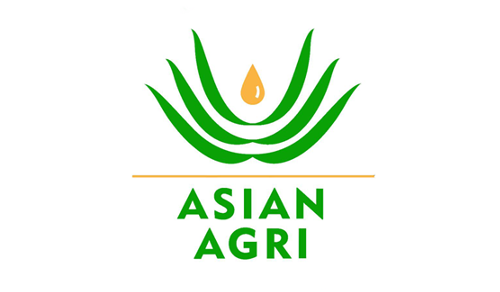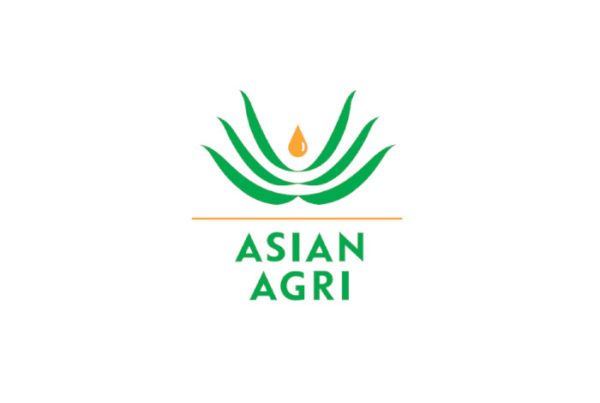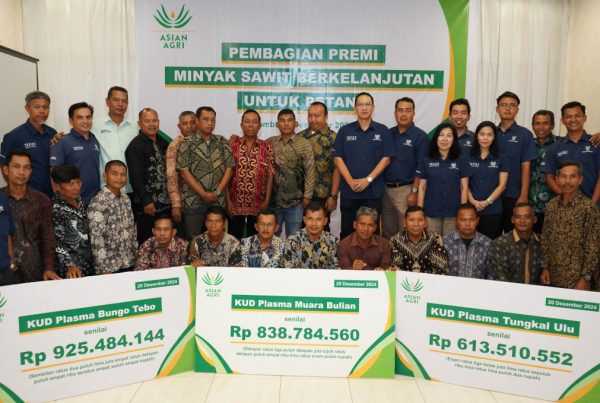12 April 2016
Response to EoF Report ‘No One is Safe’
Eyes on the Forest (EoF) released a report ‘No One is Safe’ on 6 April 2016.
The report highlighted incidents of illegal Fresh Fruit Bunch (FFB) entering Asian Agri’s supply chain. These incidents occurred more than a year ago, between January-April 2015. On learning about the breaches and following our investigations, we took swift action to terminate contracts with the errant suppliers in June 2015.
Asian Agri has a strict sourcing policy which we expect all our suppliers to comply with. We are committed to driving illegal sources and irresponsible practices out of our supply chain, and will not hesitate to cease trade with errant and uncooperative suppliers.
Our emphasis is also on working with our suppliers and relevant stakeholders to find practical solutions to complex supply chain issues. We feel we have a positive role to play in transforming the industry alongside and involving other stakeholders including CSOs, NGOs and the Government of Indonesia.
Our partnership with 30,000 smallholders features a strong commitment to enable them to strengthen their sustainability practices and market access through national and international certifications.
About Asian Agri’s Sourcing Policy
Our sourcing policy makes clear that it is necessary to trace our FFB supply chain, and we have undertaken a process designed to achieve just that.
We have developed a policy for our supplying mills to ensure they are receiving FFB only from legal sources, which mandates that they:
• Implement a Standard Operating Procedure for sourcing only legal FFB from smallholders and 3rd party suppliers.
• Establish a mandatory obligation for smallholders and suppliers to provide a declaration form on their commitment to supply ONLY legal FFB.
• Install notice boards at all mill gates stating “We Only source Legal FFB”
• Encourage/request smallholders and suppliers to pursue and submit Plantation Business Registration Certificate (Surat Tanda Daftar Usaha Budidaya Tanaman Perkebunan – (STD-B) as proof of legality.
- Conduct verification by visiting the smallholders and all their other sources of FFB
- Allocate quotas for respective smallholders and suppliers based on estimated potential of their areas
- Assign teams to follow up any report of illegal sourcing to verify the reality on the ground and, if necessary, terminate the supply once verified as illegal.
Individual Smallholder Mapping Program
In the beginning of 2015, we began our new strategy to identify the origin of all FFB sources in our supply chains by conducting mapping of the areas owned by individual smallholders.
Aggregator Refinery Transformation (ART) and ‘Landscape’ solutions
Also in early 2015, Asian Agri began a process to trace out the palm oil supply sheds of all our mills. Included in the sample of mills has been one of Asian Agri’s own mills and its supplying plantations, demonstrating our intention to lead by example and ensure all FFB entering ours mills is legal and responsibly sourced.
Tracing FFB sources
We are committed to tracing all of our FFB sources. However, our view is that we will not achieve the necessary transformation in our supply chains through a strategy purely focused on tracing each and every supplier. Using ART and a landscape perspective to focus our efforts on sensitive regions and high risk suppliers, we aim to deal both with problem suppliers and seek ways to protect expansion areas and other forest and peat zones not yet developed but potentially under threat.
Asian Agri’s Sustainability Journey with Smallholders
Asian Agri as one of leading oil palm plantation companies acknowledges the importance of sustainable management of oil palm plantations and smallholder’s welfare improvement. We partner with 30,000 smallholders, managing around 60,000 hectares of oil palm plantations under a partnership between the company and inti-plasma smallholders. The partnership scheme has been developed over 29 years and is one of the largest inti-plasma partnerships in the industry.
Asian Agri assists its partnered smallholders to implement best practices in environmentally sustainable plantations, as well as encourage them to achieve certifications which will increase their competitiveness and welfare.
In order to ensure the sustainable palm oil practice, Asian Agri assisted its partnered smallholders to obtain palm oil industry certification, including:
RSPO
In 2015:
• 86% of inti plantations of Asian Agri have been RSPO certified
• 74% of plasma plantations of Asian Agri have been RSPO certified
In 2016:
• Aim for 100% RSPO certification for inti and plasma plantations of Asian Agri
ISCC
In 2014:
• 100% of inti and plasma plantations of Asian Agri have been ISCC certified
In 2016:
• Continue to achieve and retain ISCC certification every year
ISPO
In 2015:
• 63% of Asian Agri’s inti plantations have been ISPO certified, and the remaining undergone audit process of ISPO
In 2016:
• Aim for 100% ISPO certification





